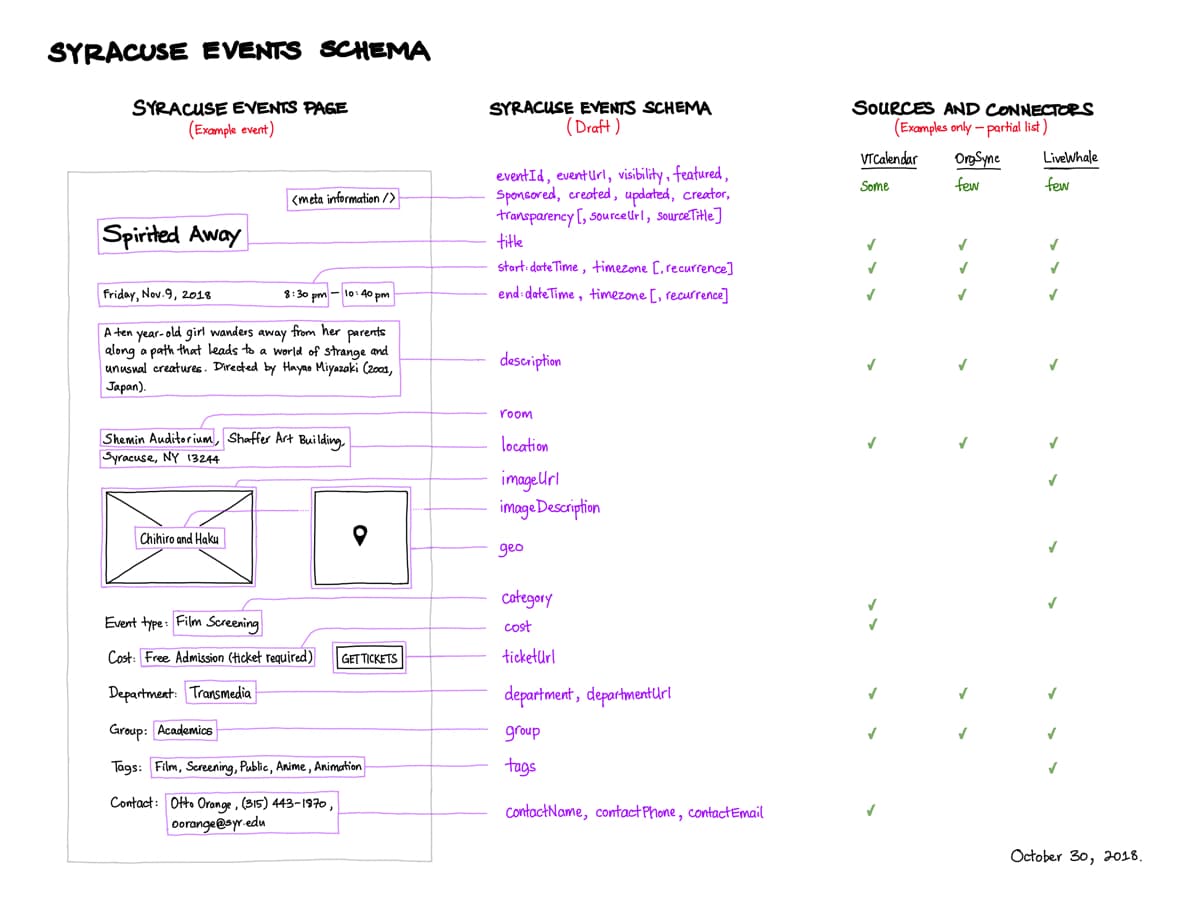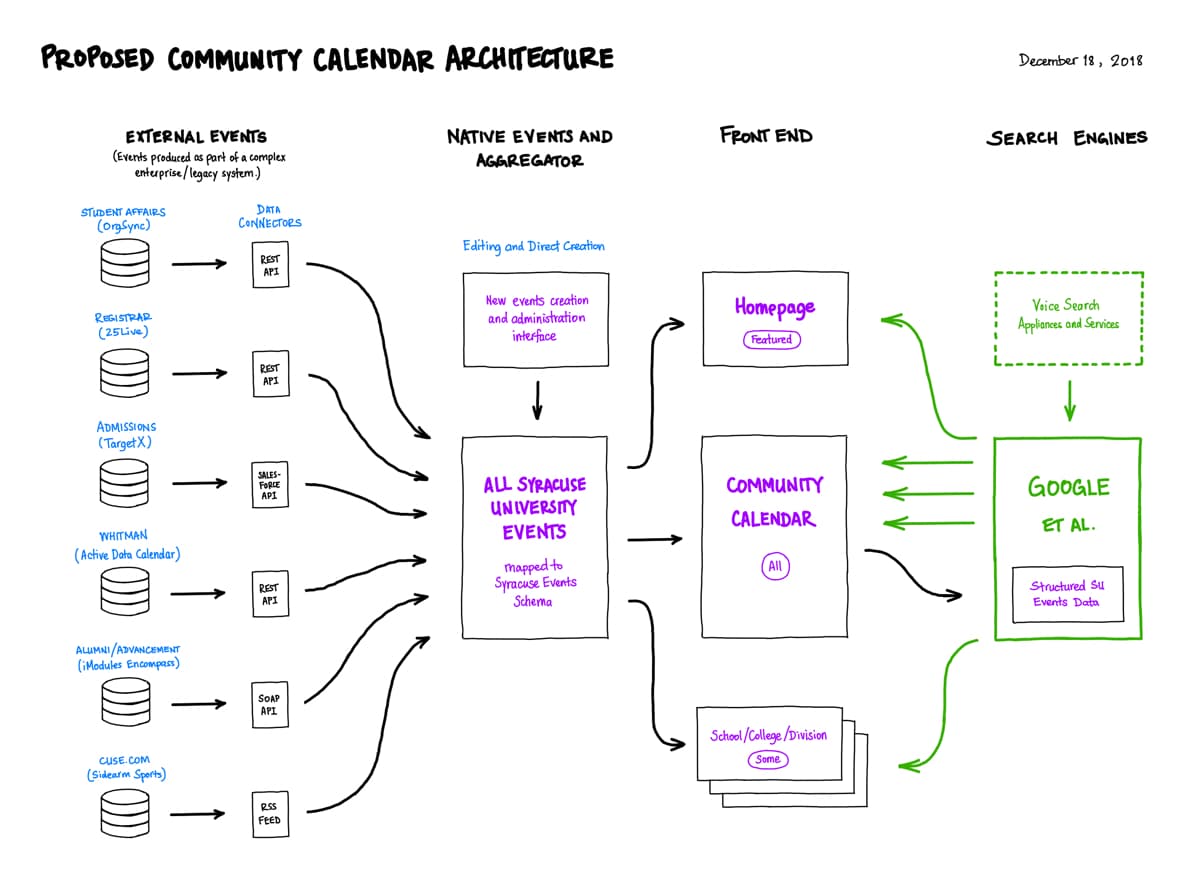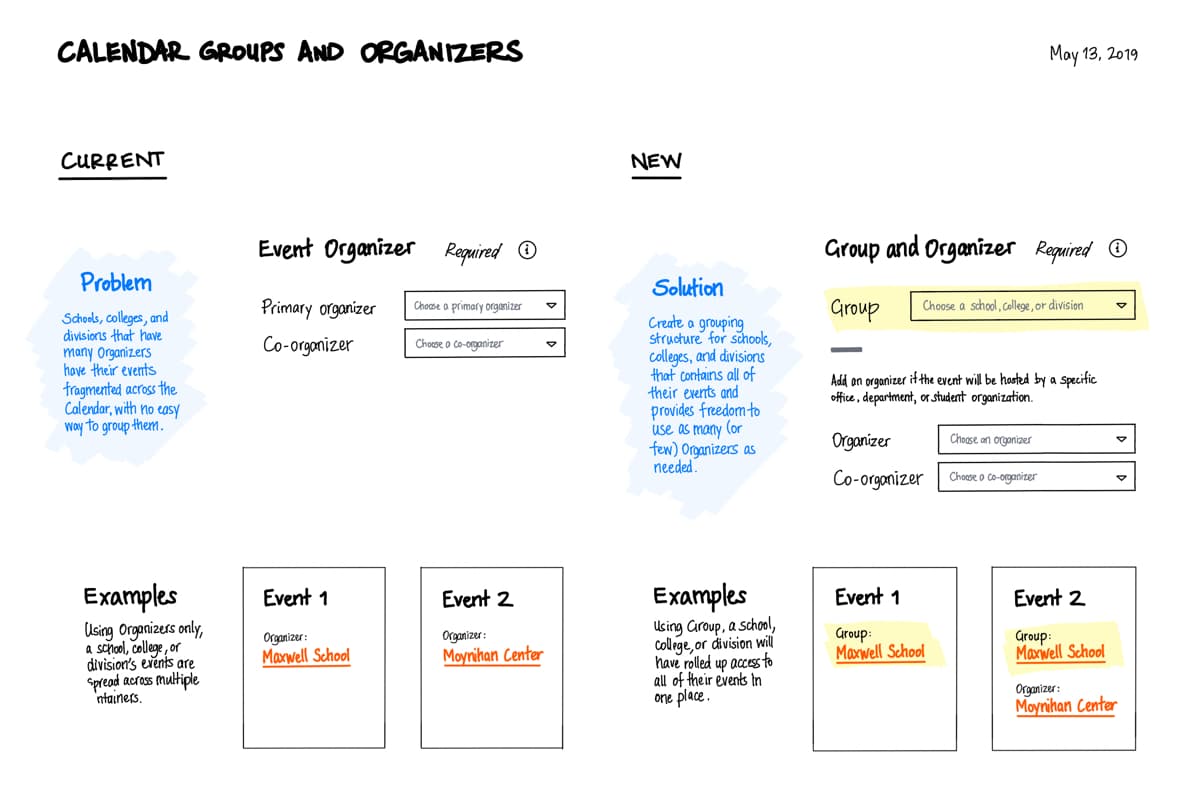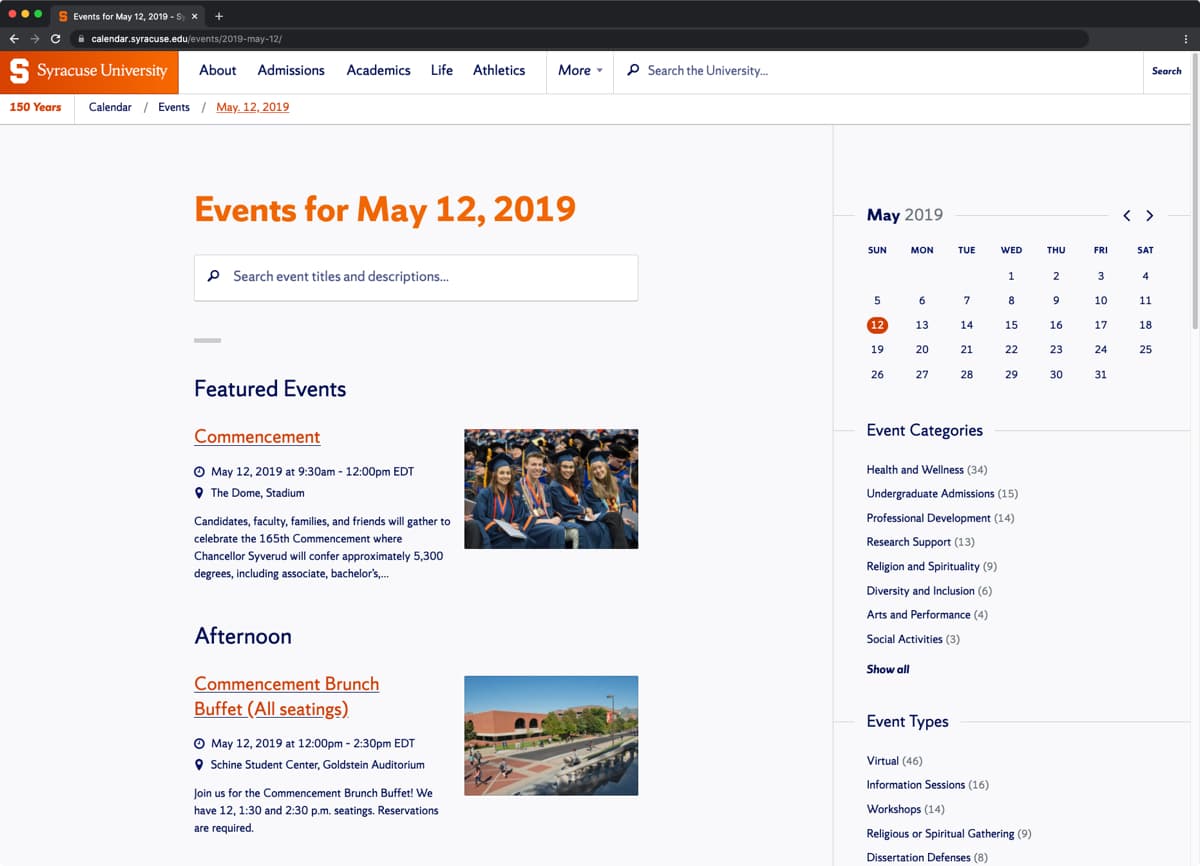Syracuse University’s unified calendar
Syracuse University needed an integrated calendar. My team built an accessible, SEO-friendly event marketing platform to serve as a one-stop shop for the campus community to discover and promote events.
Table of contents
On this page:
One calendar, many systems
The University’s existing events site, based on VTCalendar, was limited in scope. Some academic and administrative units had their own events marketing sites or internal calendaring systems, while many more relied on the use of blogs to create and promote events. To provide a unified campus calendar the Online Platforms team defined a platform architecture that would enable aggregation of existing event data sources and provide native content management, and content approval capabilities.

A single aggregation and creation platform
As the IA on that team, I worked on platform architecture, vendor evaluation, the navigation system, and technical SEO. Our evaluation criteria included accessibility, SEO features, a rich API, customization, data portability, and costs in money and time. While several third-party products showed promise, they came at the cost of front-end and API flexibility.

Our system needed to:
- Import events from external sources,
- Allow imported events to be edited, augmented, and featured,
- Provide direct (native) creation capabilities for new events, and
- Organize the presentation of all events to users and search engines, while
- Driving traffic back to the source system where appropriate (e.g. event registration).
Tailoring event creation to our organization
Within six months the team had researched, designed, and delivered a customized WordPress-based solution using a third-party plugin called The Events Calendar. The plugin provided the core events, data aggregation, and API functionality we needed while allowing for significant customization to account for our organizational structure. One example of this was group and organizer hierarchy.

To categorize content more effectively, and reduce duplication, we added a broad grouping mechanism for ownership that contains events within larger units familiar to most users (e.g. all events at the Maxwell School). Events can still have organizers, and can even be from a different group (e.g. a school’s institutes or departments, or a student organization). The calendar API can be queried either way, allowing campus partners to develop the data views that best suit their needs.
The value of a single destination

The Syracuse Calendar, launched in the spring of 2019, adopted user interface patterns from the Syracuse.edu project (e.g. navigation, search, layouts) while adding its own unique features such as month views, embedded maps, central authentication, an event submission form, and a key-based API. The product provided members of the campus community with their first global view of events and the ability to create and promote their own events to a large audience. It quickly became one of the University’s most visited websites.